News
-
June 16, 2022

ASAIO Meeting
Nayeem Imtiaz and William Stoddard presented project updates at the 67th ASAIO conference in Chicago. William presented “Advancements of DragonHeart BiVentricular Assist Device”, an update on our first tandem operation of the Dragonheart concept, on behalf of the RIT / Drexel / Jefferson team and Nayeem presented “Development of a Miniaturized Extracorporeal Membrane Oxygenation (ECMO) Device on a Microfluidic Platform”, an update on the research to develop a Microfluidic Oxygenation device, which will have the potential to supplement long term oxygenation, on behalf of the RIT / SiMPore team.
-
June 3, 2022

Frontiers in Cardiovascular Medicine Acceptance
Our manuscript that was recently submitted to Frontiers in Cardiovascular Medicine has been accepted: C.S. Fox, T.C. Palazzolo, M. Hirschhorn, R.M. Stevens, J. Rossano, S.W. Day, V. Tchantchaleishvili, and A.L. Throckmorton. “Development of the Centrifugal Blood Pump for a Hybrid Continuous-Flow Pediatric Total Artificial Heart: Model, Make, Measure.” Frontiers in Cardiovascular Medicine (IF 6.05) 2022,
-
March 1, 2022

Sensors and Actuators: A. Physical Acceptance
Krittika Goyal’s first publication, recently submitted to Sensors and Actuators: A. Physical has been accepted and is now published online. “A biomimetic skin phantom for characterizing wearable electrodes in the low-frequency regime” demonstrates a method for making a skin mimicking “phantom” that replicates the electrical properties of skin interacting with dry electrodes. Well done, Krittika!
-
January 31, 2022

Tait Preserve becoming hotbed for interdisciplinary research
RIT has an emerging new hotspot for interdisciplinary research about 25 minutes from the main campus. The Tait Preserve includes a 60-acre lake and a private mile of Irondequoit Creek adjacent to Ellison Park, offering endless opportunities for research, education, and conservation activities.
-
January 1, 2022
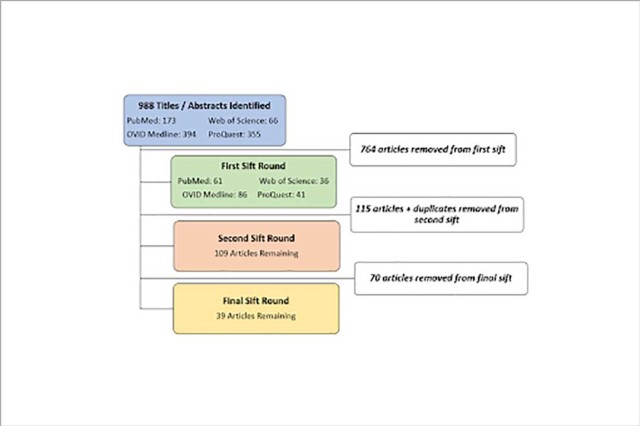
Artificial Organs Publication
A literature review paper on pediatric MCS with the Drexel team that explains the motivation for DragonHeart and is now available online.
-
January 1, 2022
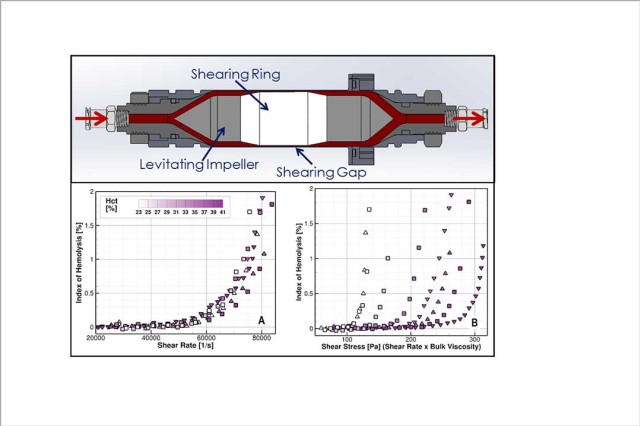
Artificial Organs Acceptance
MS student James Krisher’s work with FDA’s Rich Malinauskas is now published online. Blood contacting medical devices, including rotary blood pumps, can cause shear-induced blood damage that may lead to adverse effects in patients.
-
September 28, 2021
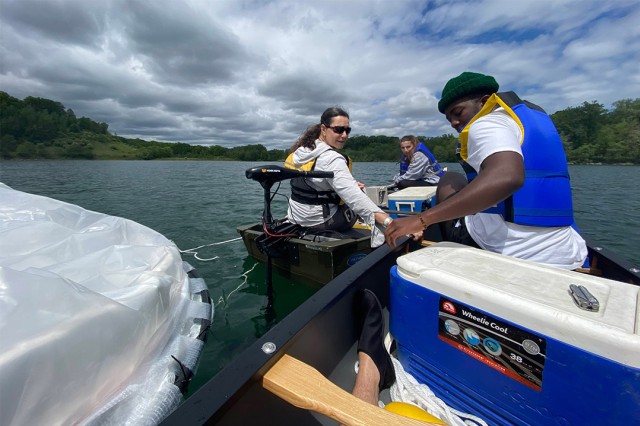
Researchers receive funding to research and address how plastic ends up in Great Lakes
Professor Christy Tyler from the Thomas H. Gosnell School of Life Sciences and Associate Professor Matthew Hoffman from the School of Mathematical Sciences secured two NOAA Marine Debris Program awards to lead interdisciplinary projects with big environmental implications.
-
June 22, 2021

RIT engineering researcher and UR physician apply for patent for blood typing device
Steven Day, professor of biomedical engineering at RIT, and Majed Refaai, from the University of Rochester, applied to the U.S. Patent Office this past April for a new blood typing device that can assist trauma patients prior to blood transfusions.
-
February 3, 2021
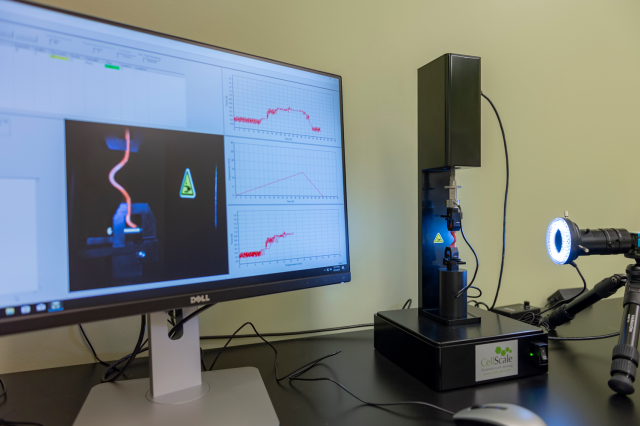
Steven Day awarded 406K from NIH
Steven Day, head and professor in Biomedical Engineering, receives an award to develop a silicon membrane device for newborns that will treat life-threatening lung problems. The device aims to reduce problems associated with current devices to minimize bleeding and clotting risks.
-
September 16, 2020

Steven Day awarded 337K from NIH & Drexel University
Steven Day, a professor in Biomedical Engineering, received 337K from the National Institutes of Health, in collaboration with Drexel University to research ventricular assist devices (VADs) for high-risk pediatric patients in outpatient settings.
-
May 26, 2020
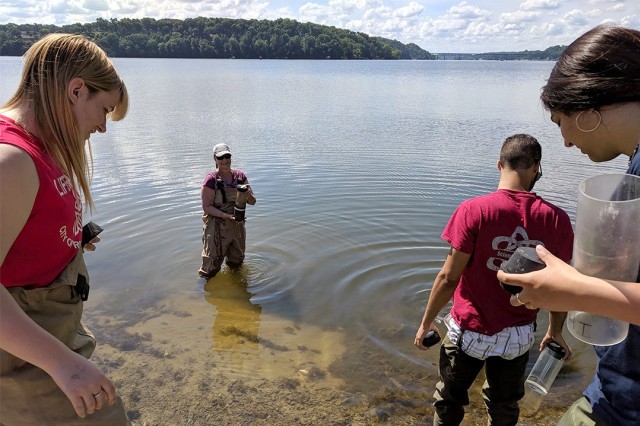
RIT researchers receive grant to study microplastic pollution in Lake Ontario
A team of RIT researchers will explore how tiny particles of plastic pollution are impacting Lake Ontario thanks to new funding from the National Oceanic and Atmospheric Administration. The multidisciplinary group will examine how microplastics are transported and transformed in the lake, where they ultimately end up and what effects they have on the ecosystem.
-
February 10, 2020
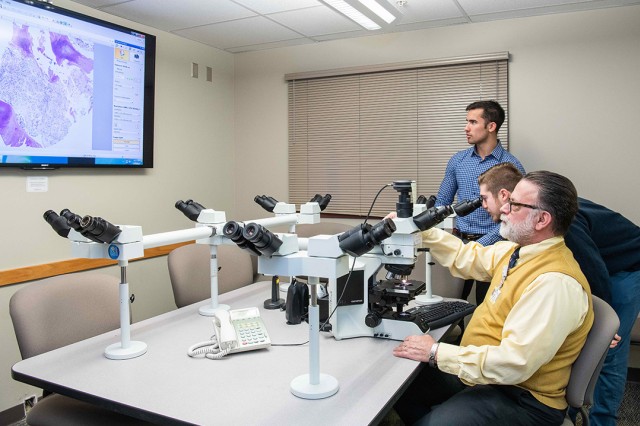
In Focus: Biomedical engineering students help advance digital microscope technology
Biomedical engineering students Brandon Buscaglia and Marcus D’Aguiar are helping physicians see the invisible. The undergraduates developed a motorized stage and tracking prototype that works in conjunction with digital microscopes. The students’ ideas are being incorporated into a company’s tech offerings today, providing the potential to make an impact in health care applications tomorrow.